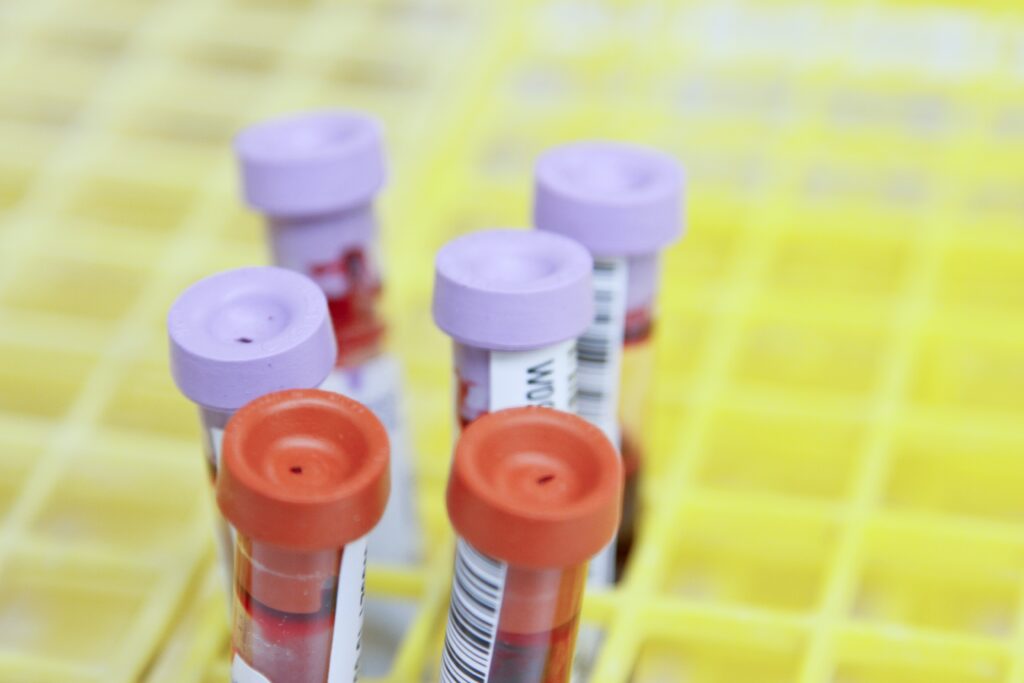
How should courts resolve patent infringement disputes where patients rely on allegedly infringing treatments? The U.S. District Court for the Middle District of North Carolina (the “Court”) recently grappled with this question in granting a preliminary injunction against NeoGenomics for their product “RaDaR,” in which allegedly infringes two of NeoGenomics’ competitor Natera’s patents: U.S. Patent Nos. 11,519035 (“the ‘035 patent”) and 11,530,454 (“the ‘454 patent”). The ‘035 patent and ‘454 patent are directed to methods for amplification of targeted genetic material, de-amplification of non-targeted genetic material, and the detection of targeted genetic material indicative of disease or disease recurrence. The patents were both granted in December 2022. RaDaR has been used in clinical cancer research since April 2020 and commercially available since March 2023. Natera sued NeoGenomics in July 2023 and sought a preliminary injunction against RaDaR.
The Court found that Natera had satisfied its burden to warrant a preliminary injunction. First, the Court found that Natera was likely to succeed on the merits of its infringement claim, expressly rejecting NeoGenomics’ invalidity arguments. The Court also found that because the presence of RaDaR would interfere with Natera’s ability arguments. The Court also found that because the presence of RaDaR would interfere with Natera’s ability to “establish brand recognition, customer loyalty, and business foundations [,]” Natera would suffer irreparable harm by allowing RaDaR to remain on the market. Further, the Court found that the balance of equities also favored granting of a preliminary injunction because Natera’s embodying product (“Signatera”) was important to Natera’s economic success and Natera’s “most valuable offering [,]” while RaDaR was only a small portion of NeoGenomics’ products.
But the Court’s analysis of the public interest factor required a more delicate approach. Here, the Court weighed Natera’s rights as a patent holder against the benefits of competition in the cancer diagnostics space and patients’ reliance on RaDaR for medical care. The Court found that although consumer choice is important, “competition from an infringing product does not benefit the public, and it impedes innovation.” But the Court also acknowledged the “public generally benefits from clinical trals, [product data, credibility in the marketplace, and published research so trials] should be carried out if they have been approved and completed if they are in process.” Particularly, as even Natera conceded, “current patients using RaDaR, whether in clinical trials or otherwise, cannot at this point in their medical care use Signatera as a substitute.” Accordingly, the Court ruled that while the preliminary injunction would stop commerical availability RaDaR, the preliminary injunction would also be “crafted” to “avoid[] disruption to ongoing treatment, research, and clinical studies [,]” which would include both ongoing trials and trials that have been approved, but not started.
The Court’s grant of a “partial” preliminary injunction demonstrates that certain scenarios, like in-progress or impending clinical trials, warrant exclusion from a preliminary injunction for public interest. The preliminary nature of the decision leaves open the question of how to deal with those patients relying on RaDaR should it ultimately be deemed infringing, since all parties agree that “avoiding disruption to ongoing treatment, research, and clinical studies is proper” regardless of the outcome in this case.
